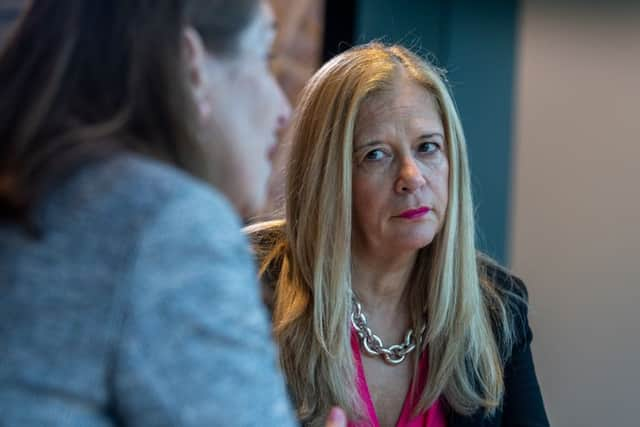Why at least half the candidates on shortlists for top roles must be women


Denise Wilson, the chief executive of the Hampton-Alexander report, which analyses the gender imbalance in senior management roles, said a step change was needed to ensure more women gained leadership positions.
The latest Hampton-Alexander report showed that women now hold 32.4 per cent of all FTSE 100 board positions, up from 30.2 per cent last year. The figure in 2011 was only 12.5 per cent.
Advertisement
Hide AdAdvertisement
Hide AdMs Wilson was joined by Melanie Richards, the deputy chairman of KPMG UK in Leeds yesterday, to host an event about gender diversity in boardrooms. KPMG is a sponsor of the review.


Ms Wilson said: “Gender has become a core business issue in the workplace as talent gets more scarce. Women are aware that they need to put themselves forward; they need to be talking about what their career aspirations are.
“Generally people in the workplace are more aware of inherent bias that is in place in almost every single people process, from selection to performance management to pay. This is a hot topic in a way that a decade ago it wasn’t.
“Particularly for women this was a career-limiting water cooler conversation a decade ago and it’s turned into something that is now a core, critical business issue.”
Advertisement
Hide AdAdvertisement
Hide Ad“We all carry inherent biases and preferences for people who look and sound and think like us and it’s just human nature,but that doesn’t make for the best teams.


“We have seen that homogeneous teams do not necessarily produce the best operational financial performance. They encourage blind spots and group think.”
Ms Richards added: “It’s about looking at leadership in its broadest sense.
“There has been this bias in terms of thinking about this male heroic style of leadership.
Advertisement
Hide AdAdvertisement
Hide Ad“There is nothing wrong with being a hero. We need to focus much more on skills and capability and making sure we are thinking about bringing all talent through.
She added: “It’s a question of who is on the shortlist for these roles. The reason we need to get to 50-50 shortlists or indeed a number of women applying for these roles, is when there is only one woman candidate on a shortlist we know it is very unlikely the woman will be selected. That is simply because of the bias that is in the system. We need a much more holistic consideration.”
Not all companies are making the same efforts to tackle gender equality, according to the Hampton -Alexander report
The gap between those working hard to improve gender balance and those doing little, is each year more obvious, the report concluded.
Advertisement
Hide AdAdvertisement
Hide AdDenise Wilson, the review’s chief executive said: “When you get a CEO who really cares about this subject and treats it like a core business issue then things change very fast.
“The difference is the approach and the voice of the leader. That counts more than anything else.”